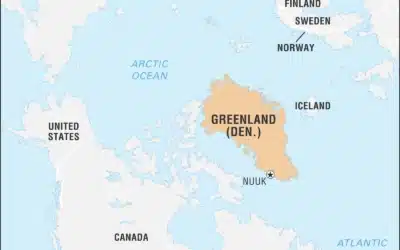The 2020 presidential field is saturated with candidates decrying wealth inequality and making the argument to soak the rich. One front-runner, for instance, is constantly denouncing “the millionaires and the billionaires.” Ominously, a New York Times poll found that two-thirds of Americans believe that “wealth in this country should be more evenly distributed among more people.”
Now, it is true that, in America, the top 1% owns 42% of the wealth, and the top 0.1% owns as much as the bottom 90 percent, so it’s easy to see how many Americans don’t think capitalism is working for them. Relative to those “millionaires and billionaires,” plenty of people think they are getting crumbs, while others are taking big slices of the pie.
But is “income equality” the best measure of progress or prosperity?
Consider choosing between the following two actual countries. Country A has much more inequality than Country B. On the Gini measure of inequality where 0 indicates perfect equality and 100 perfect inequality Country A has a Gini index of 45 (the 103rd least-equal country) and Country B has a Gini index of 26 (among the top-ten most equal countries).
In Country A, the gross domestic product (GDP) per capita is $62,000, while in Country B, the GDP per capita is $5,700. In Country A, income in the highest quintile averages $143,000 and in the lowest quintile $15,500. In Country B, income in the highest quintile averages $10,300 and in the lowest quintile $2,900.
Country A describes the United States, and Country B describes the far more equal former Soviet state of Belarus. While everyone in Belarus is relatively much more equal, they are certainly not better off. In fact, relative to the rest of the world, the citizens of Belarus are for the most part, much poorer.
Rejecting income or wealth egalitarianism does not imply rejecting equal rights, equal treatment, or equal access to opportunity, and it does not imply that some people are judged as morally inferior. Society cannot mandate that everyone have equal height, weight, eye color, hair color, or religion, but society should not mandate that everyone make the same economic choices or be in the same economic situation, either. Even if society were to comprise otherwise-identical people who simply have different goals, we should not expect all people to have the same amount of income or wealth at all times.
One of the biggest problems with egalitarianism is it negatively judges people getting richer at different rates, even if everyone in society is getting richer in the process. Furthermore, it negatively judges the fact that every person starts with less and becomes richer throughout his lifetime
Most measures of inequality, such as the Gini coefficient, are snapshots of what people in society have in any given year and do not track what individuals have over their lives. And most of the talk about the top 1% implies that the people in the top 1% remain there. This may have been true in feudalism, where one’s title determined income, but in a market economy most people’s income and wealth change, typically moving upward, over their lifetimes.
By focusing on relative rather than absolute levels of income or wealth, egalitarianism mandates policies that can make everyone poorer as a result. Rather than looking down on increases in income and wealth in differing amounts, we should celebrate and be grateful for the efforts of those who work for the benefit of all. After all, we collectively are choosing, freely, where to spend our hard-earned money. The only entity forcing open our pocketbooks is ironically the same one politicians want to use to increase so-called equalitythe government.
Reprinted from American Institute for Economic Education.































